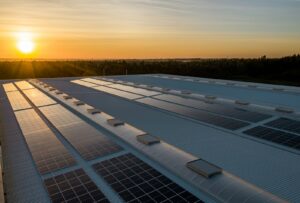The body responsible for auditing the government’s accounts has concluded the energy department’s Green Deal has not achieved value for money because it failed to persuade householders that energy efficiency measures are worth paying for.
The National Audit Office (NAO) concluded the Green Deal, a scheme designed to help people make their homes more energy-efficient, cost the taxpayer £240m and has not generated additional energy savings.
The Green Deal was launched in 2013 by the Department of Energy and Climate Change (DECC). The aim was to provide loans to households to pay for energy-saving home improvements, such as insulation and double-glazing.
In July 2015, however, the government announced it would no longer provide funding to the Green Deal Finance Company because of low take-up and concerns about industry standards.
The NAO report, Green Deal and Energy Company Obligation, discovered demand for finance had fallen well below the government’s expectations, with households only funding 1% of the measures installed through the schemes with a Green Deal loan.
It also found DECC’s design of its Energy Company Obligation (ECO) scheme to support the Green Deal added to energy suppliers’ costs of meeting their obligations, reducing the value for money of ECO.
The schemes have saved substantially less CO2 than previous supplier obligations, mainly because of the department’s initial focus on ‘harder-to-treat’ homes. This focus was, however, relaxed in 2014 enabling ECO to generate £6.2bn of notional lifetime bill savings to 31 December 2015 in homes most likely to be occupied by fuel poor people.
The NAO also criticised the government for a lack of consistency in their approach during the schemes which, it said, could increase the long-term costs of improving household energy efficiency.
DECC expects it will not recover its £25m stakeholder loan to the Green Deal Finance Company, plus £6m of interest that has accrued on it. The department does, however, expect to recover £23.5m of a loan it paid to the company in October 2014 because it will be repaid before other investors in the finance company.
Source: LocalGov















